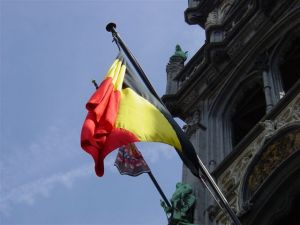

The attack from multinationals on Europe comes in many forms. But one of those forms that we herein concentrate on is the EU Patent, which is just a euphemistic way to imply expansion of corporate power over the people.
Hence, some work on the text of Brussels I appears to be necessary in order to properly implement the UPC.
Also with regard to the other parts of the acquis as examined, technical problems need to be resolved.
If all these issues are not sorted out properly right now, the real life practice of the UPC might later on become sort of a complex nightmare with numerous difficult legal problems waiting to be resolved by the Courts. The UPC is meant to provide more legal certainy; if the complex clockwork of Treaties, Regulations and Conventions isn’t adjusted properly, the EU Patent with unitary effect might fail in practice.
The head of the European Patent Office (EPO) and the European Commissioner for Internal Market and Services today renewed their commitment to introduce a unitary EU patent, which they say would significantly ease workloads and reduce costs for patent applicants.
The effort is considered a compromise after the Commission was unable to get a full EU-wide patent several years ago. The Commission issued a proposal for a unitary patent in April (IPW, European Policy, 13 April 2011). The governments of Spain and Italy filed their opposition to the idea this summer (IPW, IP Live, 7 July 2011).
The EPO press release follows:
The President of the European Patent Office (EPO), Benoît Battistelli, met with European Commissioner for the Internal Market and Services, Michel Barnier, at the EPO headquarters in Munich today to discuss the planned introduction of a unitary patent aimed at improving the European patent system to better serve the needs of European industry. They also discussed the progress of the automatic translation system for patents, which is currently being developed in the EPO.
The visit by the EU delegation also included two Members of the European Parliament, Eva Lichtenberger and Cecilia Wikström.
"The most disturbing thing, based on the above text, is that people who oughtn't intervene in such a process do intervene, often in some rather disturbing ways."Europe does not need software patents and it does not need a unified patent system that facilitates those. Those patents are, by their very nature, absurd and moreover, as we pointed out before, Oracle's case is dissipating a bit, one patent (or several) at a time yielding just about nothing but a total waste of time and money. Not so bad for patents lawyers, eh? Their clock is ticking and the register is ka-chinging.
It ought to be added that a few hours ago one of our readers from Belgium wrote: "After my visit to the single market forum in Krakow my trust in (EU) politicians and there guests were even more squeezed.
"Member of the panel Dr. Katarzyna Lasota Heller freelance lawyer/lobbyist claimed to be IP specialist but refused to answer my questions about the benefits to small businesses. Her goal is clear since she answers that patents will be more easy to gain as she runs away agitated.
"Only Waldemar Pawlak, vice premier Poland managed to give a more stupid speech than Van Quickenborne (B) the well known puppy of De Gucht senior by giving a fired up speech on IP giving Wikipedia as example."
Apologies for the strong language and relatively weak English. The comment was at least informative and important. ⬆